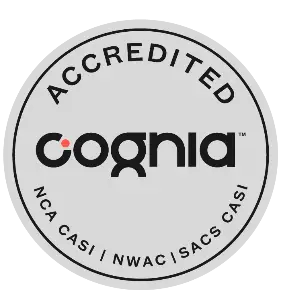POLICY NUMBER:
100.05
ADOPTED:
10.6.2020
Board Policy
1. The Board of Education has the power and duty to prepare and adopt an annual budget for each fiscal year and file it with required designated bodies as required by statute (See Utah Code §53G-4-402 and Utah Code §53G-7-302).
2. The Board of Education is committed to values and principles of fiscal accountability, transparency, and ethical financial management to safeguard public funds.
3. The Board of Education will establish budget principles that will be used in the development of the District’s Budget.
POLICY NUMBER:
100.05-1
APPROVED:
10.6.2020
The Budget Principles are as follows:
1. Background
1.1. Budgeting principles set forth the ideals that District decision makers will adhere to as they develop the budget and can help counteract the tendency to induct short-term emotion into decisions that have long-term consequences. Principles are important for creating a shared understanding of the overarching values that underpin budget development. Finally, because principles are broader ideas about what the budget process ought to look like, they are more accessible to elected officials and the public than budget policies, which are more technical.
2. Student Achievement Should Drive the Budget Process
2.1. Goals for student achievement and growth should guide how resources are allocated and inform how budget decisions are made to prioritize programs and strategies. These goals will be specific and measurable addressing the results the District wishes to achieve. Research suggests that high quality professional staff are a primary resource for student success. As a service organization, the majority of the District’s operation budget is compensation and benefits of its’ employees. Therefore, the District should ensure investments in this valuable resource are directed towards maintaining quality, trained professionals to achieve its’ goals.
3. Decisions Should be Grounded in Data
3.1. Making decisions that will impact the future of our children is a profound responsibility with considerable consequences. These decisions should be grounded in data to optimize student achievement and growth for the available money. While professionals in the District have the knowledge and expertise to evaluate programs and service providers, those programs and providers that have a demonstrated track record of success in achieving the District’s desired learning outcomes for students should be prioritized for funding. Data included in evaluating programs and service providers should include input from relevant stakeholders to ensure that all qualitative and quantitative data on student outcomes is considered through an evidence based decision making process.
4. Base Resourcing Decisions on Best Value for Students
4.1. The budget process should seek to allocate available dollars optimally, in a way that will create the most benefit for students given the costs – in other words, the best value. Strategies and programs that have proven to produce larger gains in student learning relative to their cost should be given priority. Budget decisions should be based on what is best for students, not adults. Programs that are chosen should be implemented fully and faithfully, even if that means fewer programs.
5. Critically Re-Examine Patterns of Spending
5.1. Past patterns of spending may no longer be affordable or even relevant given changing needs of the community and student body. Hence, the budget process should encourage review of past spending decisions and critically change, where necessary. The district should develop and adhere to a process to identify and discontinue programs that are not achieving their objectives or that are simply not as cost effective as available alternatives.
6. Ensure Equality of Opportunity for Every Student
6.1. Educational equity means raising the achievement of all students while (1) narrowing the gaps between the lowest and highest performing students and (2) eliminating the racial predictability and disproportionality of which student groups occupy the highest and lowest achievement categories. The concept of educational equity goes beyond formal equality – where all students are treated the same – to fostering a barrier-free environment where all students have the opportunity to benefit equally. Educational equity benefits all students, and our entire community. To achieve educational equity, the District will provide additional and differentiated resources to support the success of all students.
7. Take a Long-Term Perspective
7.1. The District will not be able to make large changes to its educational strategy and resource allocation patters within a single year. Further, a consistent application of proven strategies over a multi-year period will deliver better results. Therefore, to the degree possible, the District would develop and adhere to a multi-year funding plan for its strategies, with the goal of fully funding and realigning resources where necessary to fund high priority elements of the strategies.
8. Be Transparent
8.1. Effective budgeting requires valid information about the true costs of serving students and the outcomes produced for students. As a result:
8.1.1. The budget process should be informed by valid and reliable data on fiscal and academic performance.
8.1.2. The full cost of educating students should be considered, including all classroom and non-classroom costs.
8.1.3. The budgeting process should consider all available fund, acknowledging constraints on categorical funds, but should consider all available monies to make the most impact.
8.1.4. The budget should make it clear what actions are being funded to help the District reach its student achievement and growth goals – not just line items and broad expenditure categories.
8.2. The budget shall be understandable to the community and the stakeholders the District serves.
Forms
None
Document History
This online presentation is an electronic representation of the Canyons School District’s currently adopted policy manual. It does not reflect updating activities in progress. The official, authoritative manual is available for inspection in the office of the Superintendent located at 9361 South 300 East Sandy, UT 84070.

